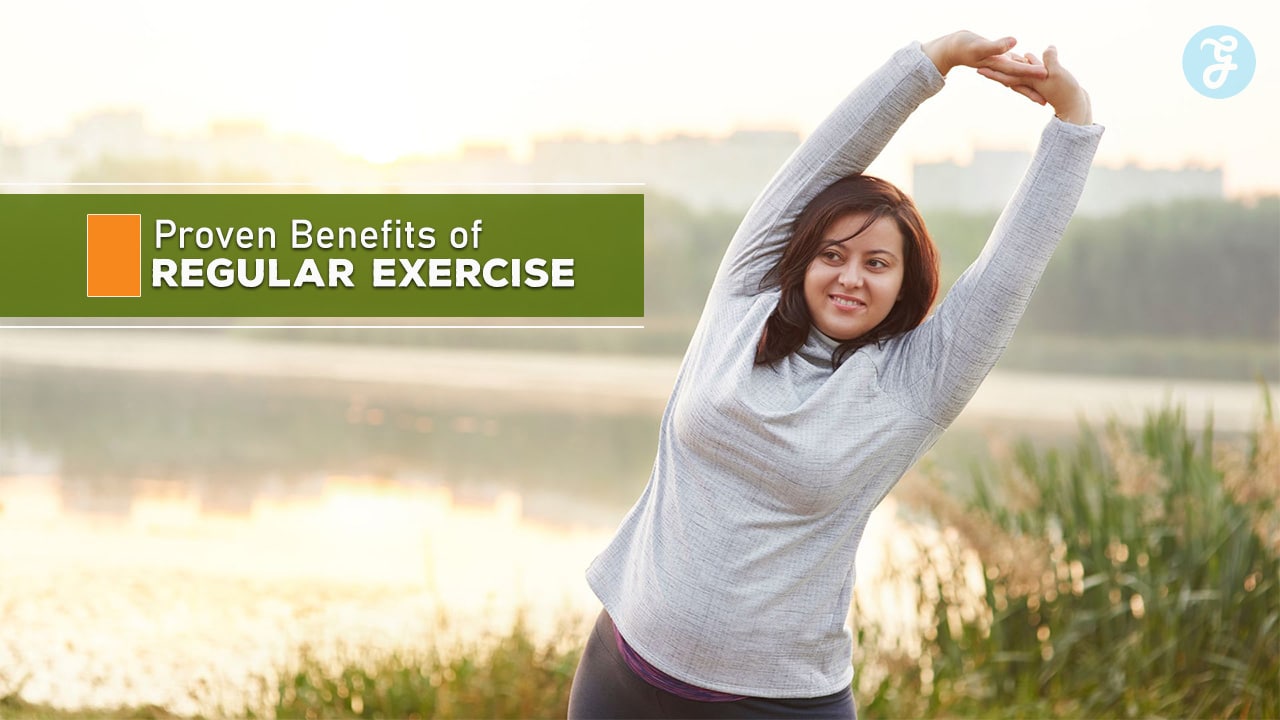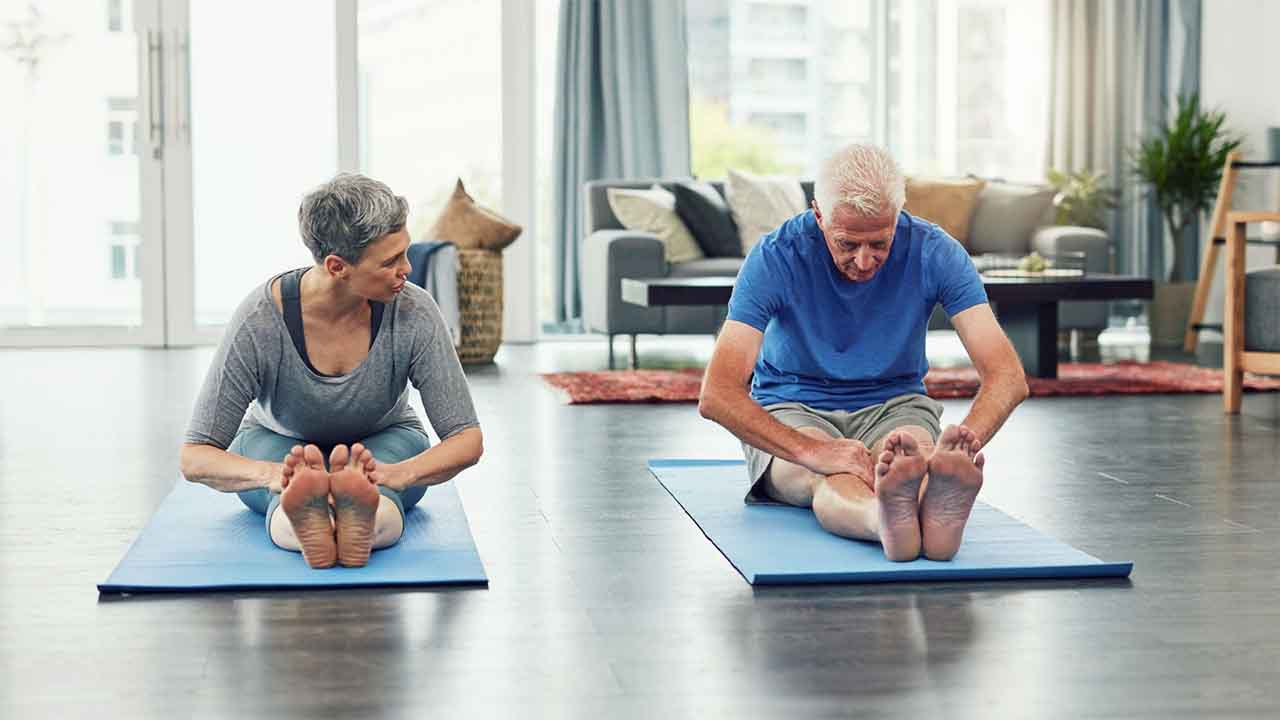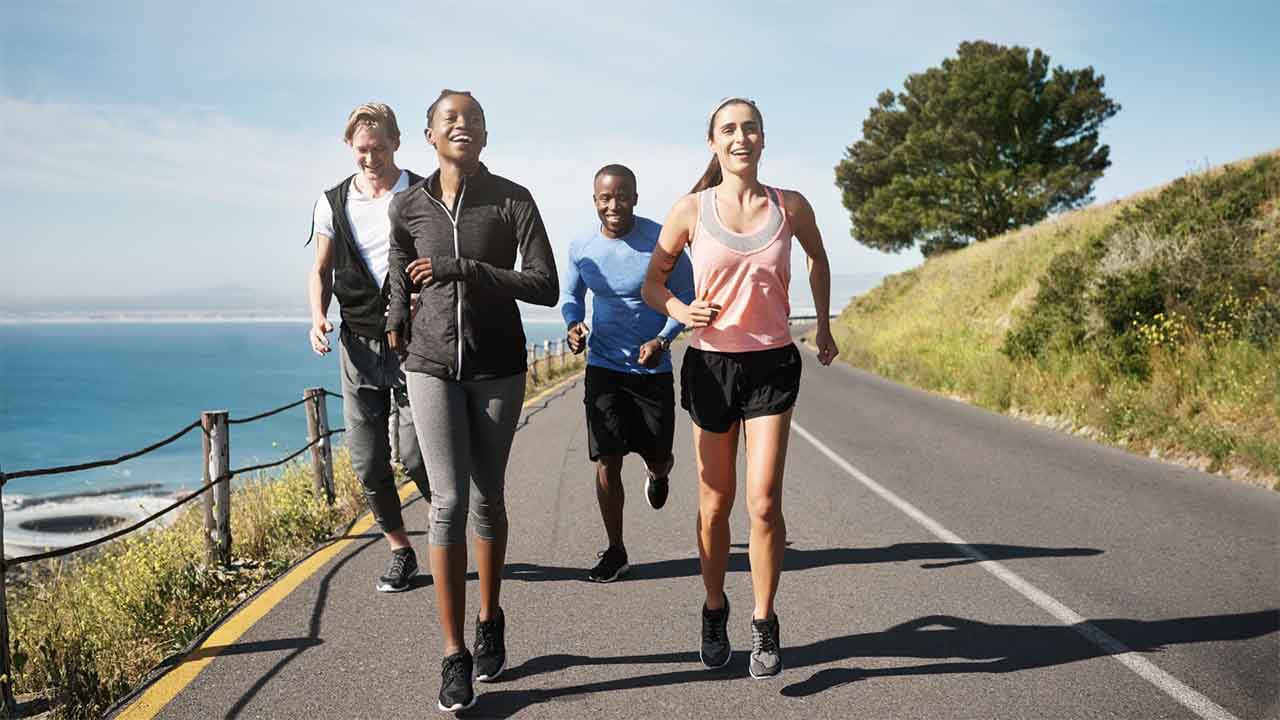Exercise is a powerful tool for improving your health and well-being. It can boost your mood, help you sleep better, and give you more energy. Regular physical activity also helps prevent many chronic diseases.
Exercise offers a wide range of benefits for both your body and mind. By making it a part of your daily routine, you can enjoy better physical and mental health.
From stronger muscles to sharper thinking, the positive effects of exercise touch nearly every part of your life.
1. Improved cardiovascular health
Exercise makes your heart stronger. When you work out, your heart pumps more blood to your body. This helps your heart do its job better.
Regular physical activity can lower your blood pressure. High blood pressure can lead to heart problems. Exercise helps keep your blood vessels flexible and healthy.
Your blood flow improves with exercise. This means oxygen moves around your body more efficiently. Better blood flow helps your heart work less hard.
Exercise can boost your good cholesterol levels. It may also lower bad cholesterol. This balance is good for your heart health.
Working out regularly can reduce your risk of heart disease. It helps control many factors that contribute to heart problems.
Physical activity helps you maintain a healthy weight. Being overweight puts extra strain on your heart. Exercise can help you avoid this issue.
Your heart becomes more efficient with regular exercise. It can pump more blood with each beat. This means your heart doesn’t have to work as hard during rest or activity.
Exercise can improve how well your body uses oxygen. This is called cardiovascular fitness. Better fitness means your heart and lungs work better together.
2. Increased muscle strength
Regular exercise can boost your muscle strength. When you lift weights or do bodyweight exercises, your muscles get stronger. This happens because your body builds new muscle fibers.
Stronger muscles make daily tasks easier. You can carry groceries, climb stairs, and move furniture less quickly. Your posture may improve, too, which can reduce back pain.
As you get older, exercise helps keep your muscles strong. This is important for staying independent and avoiding falls. Even small increases in strength can make a big difference in your life.
You don’t need to be a bodybuilder to see results. Just two or three weekly strength training sessions can lead to noticeable improvements. Start with light weights and gradually increase as you get stronger.
Remember, muscle strength isn’t just about looks. It’s about function and health. Strong muscles support your joints and help protect you from injuries. They also boost your metabolism, which can help with weight control.
3. Better weight management
Regular exercise helps you manage your weight more quickly. When you work out, you burn calories. This can help prevent weight gain and make it easier to lose extra pounds.
Exercise boosts your metabolism, too. A faster metabolism means your body burns more calories even when resting. This helps you maintain a healthy weight over time.
Combining exercise with a balanced diet is vital. You’ll see the best results for weight management when you’re active and eat well. Even small amounts of daily activity can make a big difference.
Different types of exercise can help with weight control. Cardio burns lots of calories during your workout. Strength training builds muscle, which increases your resting metabolism.
You don’t need to spend hours at the gym. Short bursts of activity throughout the day add up. They are taking the stairs, walking more, or doing bodyweight exercises at home all count.
Staying active also helps curb appetite for some people. You may make healthier food choices when you exercise regularly. This supports your weight management goals even more.
4. Stronger bones
Regular exercise can help you build and maintain strong bones. This is crucial for preventing osteoporosis and fractures as you age.
Weight-bearing exercises are perfect for your bones. These include activities like walking, jogging, and climbing stairs. When you do these exercises, your bones work harder to support your body weight.
Strength training also benefits your bones. Lifting weights or using resistance bands puts stress on your bones. This stress signals your body to build more bone tissue.
Exercise improves your balance and coordination, too. This reduces your risk of falling and breaking bones. Better balance can make a big difference in staying safe as you age.
Regular physical activity can lower your chances of falling by about 30%. This is excellent news for older adults at higher risk of falls.
By exercising regularly, you’re investing in your bone health for the future. Start to keep your bones strong and reduce your risk of problems later in life.
5. Enhanced mental health
Regular exercise can work wonders for your mental health. When you work out, your brain releases feel-good chemicals called endorphins. These natural mood boosters can help lift your spirits and reduce stress.
Physical activity also helps lower anxiety and depression. Studies show that running for just 15 minutes a day can cut your risk of major depression. Even a daily hour-long walk can significantly affect how you feel mentally.
Exercise sharpens your mind, too. It improves your ability to think, focus, and remember things. Moving your body stimulates the growth of new brain cells, which keeps your mind sharp as you age.
Being active builds self-esteem as well. You’ll likely feel more confident as you become more robust and fit. Regular workouts are an investment in yourself that pays off how you feel inside and out.
Better sleep is another mental health perk of exercise. Physical activity can help you fall asleep faster and enjoy a deeper, more restful sleep. This leaves you feeling refreshed and ready to take on each day.
6. Improved mood
Exercise can make you feel better. When you work out, your brain releases chemicals that boost your mood. These chemicals are called endorphins. They help you feel happier and more relaxed.
Regular physical activity can reduce stress and anxiety. It gives you a chance to take your mind off worries. You can focus on your body and breathing instead of daily problems.
Exercise can also help with depression. Even short bursts of activity can lift your spirits. A 15-minute walk or jog may improve your mood.
Being active outdoors has extra benefits. Sunlight and fresh air can make you feel more optimistic. Try walking in a park or going for a bike ride to combine exercise with nature.
Group activities like team sports or fitness classes can boost your mood, too. They give you a chance to connect with others. Social interaction while exercising can make you feel better.
You don’t need to do intense workouts to feel the mood benefits. Gentle exercises like yoga or tai chi can also improve how you feel. These activities help you relax and focus on the present moment.
Remember, consistency is critical. Regular exercise has a more significant impact on mood than occasional workouts. Try to be active most days of the week for the best results.
7. Reduced stress
Exercise is a great way to lower your stress levels. When you work out, your body releases chemicals called endorphins. These make you feel good and help you relax.
Physical activity can also take your mind off worries. It gives you a break from stressful thoughts and lets you focus on something else.
Regular exercise helps you sleep better at night. Good sleep is critical for managing stress. When you’re well-rested, you can handle daily pressures more easily.
Being active boosts your confidence, too. As you get fitter and more robust, you’ll feel more capable of dealing with life’s challenges.
Even short bursts of exercise can help. A quick walk or jumping jacks can lift your mood when you’re tense.
Try different types of exercise to see what works best for you. Some people like yoga for its calming effects. Others prefer running or team sports.
Make exercise a habit to keep stress in check for a long time. Aim for at least 30 minutes most days of the week. You’ll likely notice improvements in how you handle stress over time.
8. Better sleep quality
Regular exercise can help you sleep better at night. When you work out, your body gets tired and needs rest. This makes it easier to fall asleep when bedtime comes.
Exercise also reduces stress and anxiety. These often keep people awake at night. Lowering stress levels allows you to relax more easily and drift off to sleep.
Working out boosts your mood, too. Feeling good mentally can lead to more peaceful sleep. You’ll toss and turn less and wake up feeling more refreshed.
The timing of exercise matters. Try to finish your workout at least a few hours before bed. This gives your body time to calm down and prepare for sleep.
Any exercise can help, but some may work better than others. Gentle activities like yoga or stretching can be perfect for sleep. They relax your muscles and mind.
Consistency is key. Try to exercise regularly, not just once in a while. This helps set your body’s internal clock and improves sleep patterns.
9. Boosted immune system
Regular exercise gives your immune system a boost. This means your body can fight off germs and illnesses better.
When you work out, your body makes more immune cells. These cells help protect you from getting sick. The number of these cells can go up by 50% to 400% during exercise.
Exercise also helps your immune system respond faster to threats. When you’re physically active, your body can spot and attack viruses more quickly.
Physical activity also improves how vaccines work in your body. If you exercise regularly, you may develop more robust antibodies after getting a shot.
Aim for about 150 minutes of moderate exercise each week to get these benefits. This could be activities like brisk walking, swimming, or cycling.
Remember, the immune boost from exercise is temporary. Your immune system returns to regular a few hours after working out. That’s why it’s essential to exercise regularly.
Don’t overdo it, though. Very intense workouts might lower your immunity for a short time. Stick to moderate exercise for the best immune-boosting effects.
10. Increased flexibility
Regular exercise can make your body more flexible. This means you can move your muscles and joints more easily. Stretching is a vital part of this.
Flexible muscles help prevent injuries. They also reduce pain in your back and other areas. When you’re flexible, everyday tasks become more accessible.
You can improve flexibility by doing simple stretches. Hold each stretch for 15-30 seconds. Do this 2-3 times a week or more. Even 5-10 minutes of stretching can help.
As you get more flexible, you may notice better posture. Your balance might improve, too. This can help you avoid falls, especially as you get older.
Flexibility exercises can also help you relax. They may reduce stress and make you feel calmer. This can improve your mood and help you sleep better.
Remember to warm up before stretching. Start slowly, and don’t push too hard. If something hurts, stop. With time and practice, you’ll become more flexible.
11. More energy
Regular exercise can give you a big energy boost. When you work out, your body releases chemicals that make you more awake and alert.
Your heart gets stronger from exercise, too. This helps it pump blood more efficiently. As a result, you have more energy for daily activities.
Exercise also improves your sleep quality. Better sleep means you wake up feeling refreshed and energized. You’ll have more pep in your step throughout the day.
Working out increases oxygen flow in your body. This extra oxygen gives your cells more fuel to produce energy. You’ll feel less tired and more ready to take on tasks.
Even a short walk can perk you up when you’re feeling sluggish. Try taking a quick stroll next time you hit an afternoon slump. You may be surprised how much it helps.
Over time, regular exercise builds your overall stamina. Activities that used to tire you out become easier. You’ll have energy left over for fun after finishing your daily duties.
12. Improved endurance
Regular exercise boosts your endurance. This means you can do physical activities for longer without getting tired. Your body gets better at using oxygen and energy.
When you exercise often, your heart and lungs work better. They pump blood and oxygen more efficiently. This helps you breathe easier during workouts and daily tasks.
Your muscles also get stronger with exercise. They can work harder for more extended periods. This makes everyday activities like climbing stairs or carrying groceries much more accessible.
As you build endurance, you’ll have more energy throughout the day. You won’t feel as worn out after physical tasks. This can make you more productive at work and home.
Improved endurance can also help you enjoy sports and hobbies more. You can play longer, hike farther, or dance the night away without tiring as quickly.
Remember, building endurance takes time. Start slow and gradually increase your workout time and intensity. You’ll soon see improvements in how long you can exercise and how you feel afterward.
13. Reduced risk of chronic diseases
Regular exercise can help you avoid many long-term health problems. It lowers your chances of getting heart disease, which affects your blood vessels and heart. When you exercise, your heart gets stronger and pumps blood better.
Exercise also helps with diabetes. It can lower blood sugar and make your body use insulin more effectively. This is important if you have type 2 diabetes or want to prevent it.
Cancer risk goes down when you’re active, too. Exercise seems to be especially good at lowering the risk of colon, breast, and lung cancers. It may help by reducing inflammation in your body.
High blood pressure is another condition that exercise helps prevent. Regular physical activity makes your heart stronger, so it doesn’t have to work as hard to pump blood. This puts less stress on your arteries.
Obesity is less likely when you exercise regularly. Being active burns calories and builds muscle, which helps you maintain a healthy weight. This, in turn, lowers your risk for many other health issues.
Mental health benefits from exercise, too. It can reduce symptoms of depression and anxiety. Physical activity releases chemicals in your brain that make you feel happier and more relaxed.
14. Enhanced brain function
Regular exercise can boost your brain power. When you work out, your brain gets more blood flow. This brings extra oxygen and nutrients to your brain cells.
Exercise also helps grow new brain cells. It releases chemicals that support brain health. These chemicals help your brain make new connections.
You might notice better memory after exercising. Many people find it easier to learn new things, too. Exercise can sharpen your focus and help you think more clearly.
Your brain stays younger when you stay active. Exercise can slow down age-related brain changes. It may lower your risk of memory problems as you get older.
Stress melts away with exercise, which is good for your brain. Less stress means better thinking and decision-making. You might solve problems more quickly after a workout.
Try different types of exercise for your brain. Aerobic activities like running or swimming are excellent. But don’t forget about strength training and balance exercises. They all help your brain in unique ways.
15. Improved posture
Regular exercise can work wonders for your posture. When you exercise, you strengthen the muscles that support your spine and keep you upright.
Strong core muscles are essential to good posture. Exercises like planks and bridges target your abs and lower back, helping you stand taller.
Back exercises are also important. Rows and pull-ups strengthen the muscles between your shoulder blades, pulling your shoulders back.
Stretching tight chest muscles can prevent rounded shoulders. Try doorway stretches or yoga poses like a child’s pose to open up your chest.
Neck exercises help, too. Chin tucks strengthen the deep neck flexors, reducing forward head posture.
Balance exercises improve your body awareness. This helps you maintain proper alignment throughout the day.
Regular exercise also boosts your energy levels. When you feel more energetic, you’re less likely to slouch.
Better posture has many benefits. It can reduce back pain, improve breathing, and boost confidence.
To get the most benefit, mix different types of exercises. Include strength training, stretching, and balance work in your routine.
Remember to focus on proper form during exercise. This reinforces good posture habits that carry over into daily life.
16. Increased metabolism
Regular exercise boosts your metabolism. This means your body burns more calories, even when not working out.
Your metabolism speeds up during exercise. Your heart beats faster, and your muscles work harder. This uses more energy.
The effects last after you finish exercising, too. Your body keeps burning extra calories for hours. This is called the “afterburn effect.”
Building muscle through strength training helps a lot. Muscles burn more calories than fat, even at rest. The more muscle you have, the higher your resting metabolism.
High-intensity workouts are great for your metabolism. They push your body to work harder in short bursts. This can lead to a more considerable afterburn effect.
Consistency is key. Regular exercise keeps your metabolism running smoothly. It helps you maintain a healthy weight and feel more energetic.
17. Better balance and coordination
Exercise can boost your balance and coordination skills. These abilities help you stay steady on your feet and move smoothly.
As you age, good balance becomes even more critical. It helps prevent falls and injuries. Regular exercise trains your body to maintain stability in different positions.
Many types of exercise can improve balance. Yoga and tai chi are great choices. They focus on slow, controlled movements and holding poses.
Simple exercises like standing on one foot can also help. You can try this while brushing your teeth or waiting in line. Start with a few seconds and work up to longer times.
Coordination exercises are fun and helpful, too. Activities like dancing or playing tennis challenge your body to move in complex ways. This improves how your brain and muscles work together.
Better balance and coordination have everyday benefits. You’ll find it easier to carry groceries or walk on uneven ground. Your posture may improve, too.
Remember to start slowly with any new exercise. Build up gradually to avoid injury. With regular practice, you’ll notice improvements in your stability and movement skills.
18. Improved social interactions
Regular exercise can boost your social life in many ways. When you work out, you often meet new people with similar interests. This can lead to new friendships and connections.
Group fitness classes are great for socializing. You might chat with others before or after class. Over time, these casual talks can turn into real friendships.
Joining a sports team or club is another way to expand your social circle. You’ll spend time with teammates and share goals. This builds strong bonds and a sense of belonging.
Exercise can make you feel more confident in social settings. When you feel good about yourself, talking to others is more accessible. You might find yourself more outgoing and willing to try new things.
Working out with a friend or partner can strengthen your relationship. You’ll spend quality time together and support each other’s goals. This shared experience can bring you closer.
Exercise can also improve your mood and reduce stress. When you feel happier and more relaxed, you’ll likely be more pleasant in social situations. This can lead to better interactions with everyone around you.
19. Increased self-esteem
Regular exercise can boost your self-esteem. When you work out, you feel better about yourself and your abilities. This positive effect happens even if you don’t immediately see significant changes in your body.
Exercise helps you set and reach goals. You might start by walking for 10 minutes a day. As you keep at it, you can walk longer and faster. Meeting these small goals makes you feel proud and capable.
Working out also improves how you look and feel. You might stand taller, have more energy, or fit into clothes better. These changes can make you feel more confident in your daily life.
Exercise releases chemicals in your brain that make you feel good. These “feel-good” chemicals can improve your mood and outlook on life. Feeling better overall makes you more likely to think positively about yourself.
Regular physical activity can help you sleep better and reduce stress. You’re more likely to feel good about yourself and your abilities when well-rested and less stressed.
20. Enhanced longevity
Regular exercise can help you live longer. Studies show that being more active reduces your risk of dying early.
Even small amounts of exercise make a difference. Adding just 10 minutes of activity to your day could lower your chance of death by 7%.
Moderate exercise, such as walking 150 minutes a week, can boost your lifespan. Vigorous activities like jogging for 75 minutes weekly have similar benefits.
You don’t need to do intense workouts to see results. Any increase in physical activity can improve your odds of living longer.
Exercise helps by lowering inflammation in your body. It also improves your heart health and strengthens your immune system.
Being active can help you sleep better and think more clearly. These effects may contribute to a longer life.
Regular movement keeps your muscles and bones strong as you age. This can help you stay independent and mobile in later years.
You’re never too old to start exercising. People of all ages can gain longevity benefits from being more active.
Consistency matters more than intensity. Aim to move your body in some way daily for the best results.
Physical Health Benefits
Regular exercise offers many physical health benefits. It improves your heart health and makes your muscles and bones stronger.
Improved Cardiovascular Health
Exercise is excellent for your heart. It lowers your risk of heart disease and stroke. When you work out, your heart strengthens and pumps blood more efficiently. This helps lower your blood pressure and cholesterol.
Regular physical activity also improves your circulation. Your body delivers oxygen and nutrients to your cells more efficiently. This gives you more energy and helps you feel better overall.
Aim for at least 150 minutes of moderate or 75 minutes of vigorous exercise each week. Activities like brisk walking, swimming, or cycling are good choices.
Strengthened Muscles and Bones
Exercise builds stronger muscles and bones. Weight-bearing activities like walking, jogging, and strength training make your bones denser. This lowers your risk of osteoporosis as you age.
Resistance exercises help you gain muscle mass and strength. This improves your balance and makes daily tasks easier. Strong muscles also protect your joints and reduce pain from conditions like arthritis.
For best results, do strength training exercises at least twice a week. Include exercises for all major muscle groups. You can use weights, resistance bands, or your body weight.
Mental Health Benefits
Regular exercise offers powerful benefits for mental well-being. It can help you feel better emotionally and boost your overall mental health.
Reduced Stress Levels
Exercise is a great way to lower stress. When you work out, your body releases chemicals called endorphins. These natural mood boosters help you feel more relaxed and positive.
Physical activity also lowers levels of stress hormones like cortisol in your body. This can help calm your mind and reduce feelings of anxiety or tension.
Moving your body through exercise gives you a healthy outlet to work through daily stresses. It takes your mind off worries and lets you focus on the present moment.
Regular workouts improve your sleep quality, too. Sleeping enough is critical for managing stress and maintaining good mental health.
Enhanced Mood Stability
Exercise can lift your mood and help you feel more emotionally balanced. Just 15 minutes of running or an hour of walking each day lowers your risk of depression.
Working out boosts brain chemicals that affect mood and thinking. It increases serotonin, norepinephrine, and dopamine levels. These help regulate your emotions.
Physical activity gives you a sense of accomplishment. Meeting fitness goals, no matter how small, builds your confidence and self-esteem.
Exercise also provides social connections if you work out with others. Positive social interactions are linked to better mental health.
Regular workouts can be as effective as medication for treating mild to moderate depression in some people. They may also help prevent depression from coming back.
Long-term Wellness Impact
Regular exercise has powerful effects on your health that last for years. It can help you live longer and avoid serious illnesses.
Increased Longevity
Want to add years to your life? Exercise is key. Studies show that being active can boost your lifespan by up to 7 years—even small amounts help. Just 15 minutes of exercise daily can increase life expectancy by three years.
How much should you do? Aim for 150-300 minutes of moderate activity or 75-150 minutes of vigorous activity per week. This can lower your risk of early death by 35-42%.
It’s never too late to start. Even if you begin exercising later in life, you can benefit significantly.
Prevention of Chronic Diseases
Exercise is like medicine for your body. It helps stop many long-term health problems before they start.
Regular activity lowers your odds of getting:
- Heart disease
- Type 2 diabetes
- Some cancers
- Arthritis
How does it work? Exercise improves how your body handles blood sugar and fats. It also reduces inflammation. This protects your organs and keeps your body working well.
Plus, staying active helps you manage existing health issues. It can ease arthritis pain, control blood sugar, and boost heart health.
Takeaway
Incorporating regular exercise into your daily routine is one of the most effective ways to enhance your overall health and well-being.
From boosting your mood and energy levels to reducing the risk of chronic diseases and increasing longevity, the benefits of physical activity are profound and far-reaching.
Whether you’re aiming to improve your mental health, strengthen your body, or simply enjoy a better quality of life, exercise is a powerful tool that can help you achieve these goals. Start today, and experience the positive impact that regular exercise can have on every aspect of your life.






































